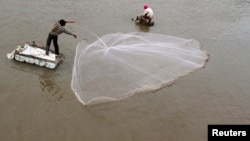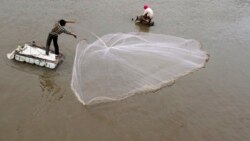The Lower Mekong River runs from China through four Southeast Asian nations to the sea. It links 70 million people in the region, who rely heavily on it for their livelihoods, since agriculture and fishing make up most of the workforce there. Because problems at any point could affect millions of people downstream, in 1995 the nations of Cambodia, Laos, Thailand, and Vietnam organized to form the Mekong River Commission to work cooperatively on issues of regional interest.
The United States aids in the process through the Lower Mekong Initiative, a forum for addressing cross-border development and policy challenges there, focusing on six areas of special interest: agriculture and food security, connectivity, education, energy security, environment and water, and health, as well as issues related to improving gender equality.
Earlier this month, under the auspices of the Initiative, the United States held a dialogue on Renewable and Clean Energy at a clean energy forum sponsored by the Asia Development Bank held in Manila, Philippines. Led by Deputy Assistant Secretary of State for Energy Diplomacy Robin Dunnigan, the dialogue brought together U.S. renewable and clean energy companies with energy officials from Burma, Cambodia, Laos, Thailand and Vietnam to discuss how U.S. firms and technologies can provide clean energy solutions and promote energy security in the Mekong sub-region.
Demand for electrical power in Southeast Asia is forecast to grow by nearly four percent a year through 2040, with energy consumption among the five countries continuing to rise dramatically. Renewable and cleaner energy can help stabilize budgets, reduce energy imports and lower carbon emissions in the region.
Panel discussions in Manila reviewed the role of solar power and wind energy, biomass, energy efficiency, and sustainable power grids to improve the Mekong sub-region’s power mix. They also discussed the range of U.S. government and private sector financial support for renewable energy investment.
Through programs such as the Lower Mekong Initiative, the United States is committed to supporting the efforts of the Mekong River basin nations to improve regional cooperation, providing a sustainable future for all who depend on the waters of the Mekong.






